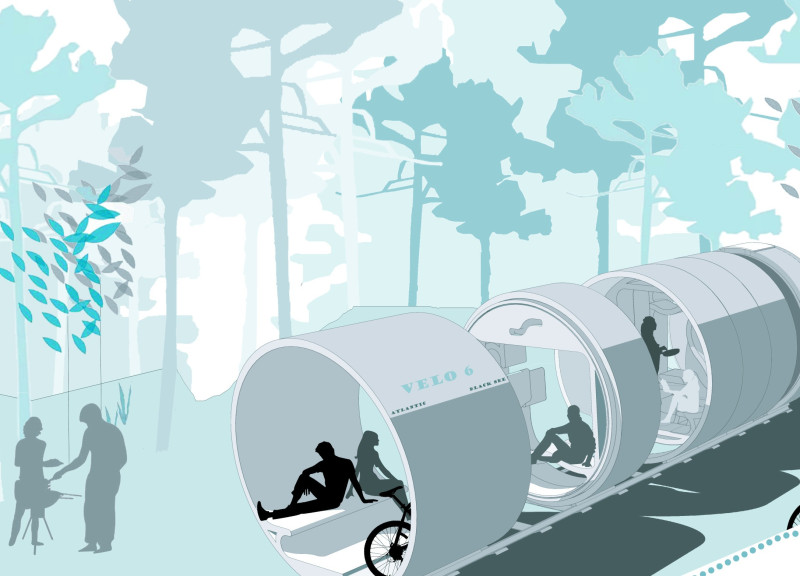5 key facts about this project
The EuroVelo Stops project focuses on the design and implementation of multifunctional stopping points for cyclists along the EuroVelo 6 route in Europe. This architectural initiative emphasizes sustainability, flexibility, and user-friendly features, in response to the needs of cyclists traversing diverse landscapes. Each stop is thoughtfully designed with a practical blend of functionality and interaction with the surrounding environment, providing essential amenities and spaces for rest or socialization.
The EuroVelo Stops project represents an innovative approach to cycling infrastructure that prioritizes user experience while maintaining a strong commitment to environmental consciousness. The core concept revolves around a rotatable cabin, allowing occupants to adjust their orientation based on preference or environmental factors, such as sunlight or scenery visibility. This adaptability is reflected in the modular design of the cabins, which allows for expansion or modification according to cyclists' needs.
Rotatable Cabin Design
One of the most distinguishing features of this project is the innovative rotatable inner module. This component of the cabin can be adjusted to provide flexible spaces that accommodate a variety of activities, including relaxation, dining, and social interactions. The non-rotatable outer module serves as a protective shell, adding durability while seamlessly integrating with the aesthetic of the landscape.
The use of sustainable polymers, natural wood finishes, and glass is central to the materiality of this design. These materials contribute not only to the structural integrity but also to the aesthetic quality of the stops. The glass elements facilitate natural light, creating an inviting atmosphere while maintaining thermal efficiency through advanced insulation materials. This combination of elements fosters a sense of comfort and connectedness with the natural environment, setting this project apart from conventional rest stops that often lack such consideration.
User Interaction and Sustainability
The EuroVelo Stops project's architectural design incorporates interactive interfaces, providing cyclists with essential information and tools for navigation. This emphasis on user-centric functionality enhances the overall experience of the stops. Furthermore, the project embraces contemporary manufacturing techniques, suggesting the use of 3D printing for customized components. This approach minimizes waste and emphasizes an efficient use of resources.
In summary, the EuroVelo Stops project offers a model for modern architectural solutions that prioritize both user functionality and environmental impact. Those interested in further details should explore the various architectural plans, sections, and designs to fully appreciate the unique ideas and methodologies employed throughout this project.


























